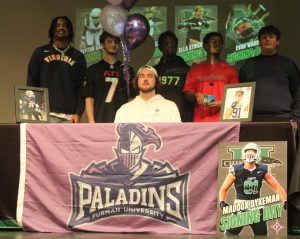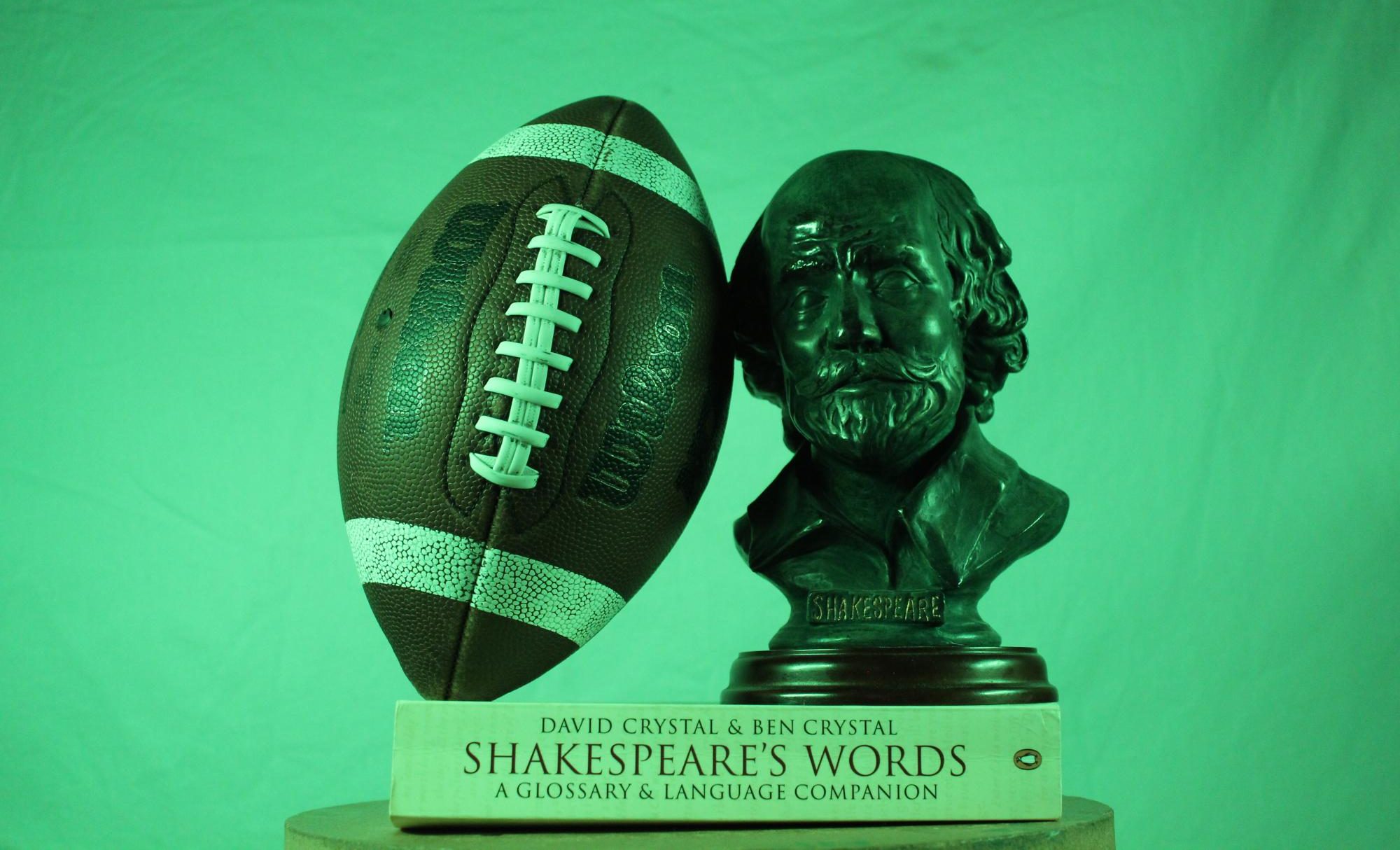Student-athletes must consider many elements when deciding to continue playing at the collegiate level. Whether students commit, factors such as financial aid, location and coaching relationships play an important role in decision making.
According to Scholarshipstats.com, “A little over 7% of high school athletes (about 1 in 13) go on to play a varsity sport in college.” For some athletes, this percentage is just a number when their decision is driven by their passion for their sport.
“I decided to play softball at the collegiate [level] because it is a sport that I love so much [and] I wanted to play it for as long as I can,” senior softball commit Amelia Angier said.
Team Culture
Not only do these athletes have to consider options that normal seniors would for college, such as academics, location, financial aid, etc., but they must also consider how they envision themselves on the team and their relationship with the coaching staff.

“The most important factors [to me were] location, money and my coaching staff. At [East Georgia] I felt like I had a strong connection with the coaches during the recruiting process and I had the grades to get the money I needed so it worked out good,” East Georgia College Baseball commit, Alex White, said.
White is looking forward to the challenging demands that college-level baseball requires to further his baseball skills.
“I think [sports] will differ in college because of the level of maturity of players,” White said.
While a team’s culture in high school may be a completely different experience than college. The spirit and chemistry of the team is an important factor when choosing between teams to join.
“It was important to me to look at the quality of the coaching staff [and] the opportunities I will have to develop and contribute to the team,” senior Maddox Dykeman said. Dykeman has committed to Furman University in Greenville, South Carolina to play football.
McIntosh Football coaches Derek Smith and Jonathan Black and have helped guide Dykeman through his journey through football from the beginning.
“Coach Smith and Coach Black have been preparing me for this for several years. I can’t wait for the higher level of competition and look forward to rising to the challenge of more intense workouts, practices and competition,” Dykeman said.
Academics
Dykeman received many offers from various schools, but in the end, he chose the school that he felt was right for him.
“Every location has pros and cons. As it stands, I love Greenville and all that it offers,” Dykeman said.

But Dykeman believes that the academic nature of his school choice will matter for his future.
“Football will end for every athlete, myself included. I think it’s important to choose a university where I can earn my degree and be prepared for life after football, wherever that may be,” Dykeman said.
For some athletes looking at their long-term goals such as whether they would like to play pro or pursue a different career is an important factor in deciding between universities.
“Academic programs influence majorly because education comes first and I wanted to make sure where I was going had my major,” Angier said.
Financial Aid and Scholarships
Financial aid and scholarships play a big role in helping students attend their preferred colleges. Especially for athletes who wish to play out of state.
“Financial aid and availability of scholarships definitely helped make my decision because I qualified for the Hope scholarship as well as getting money athletically so it will help the cost of college a lot more,” Angier said.
Dykeman was given an athletic scholarship to play at his university.
“I am so grateful that football is providing me with the opportunity to attend college on an athletic scholarship. It feels great to be able to stand on my own two feet and use my athleticism and football ability to pay for my education,” Dykeman said.
Future Careers

Most athletes don’t continue their sport after college. There could be many reasons for this or simply because they choose to take on a different career that’s more in their interest.
According to NCAA Sports, “Fewer than two percent of NCAA student-athletes go on to be professional athletes. In reality, most student-athletes depend on academics to prepare them for life after college.”
“I am undecided as to my path in life so it was very important to me to choose a University where I would receive guidance all along the way,” Dykeman said.
Having a good relationship with a coach can help athletes in the long run with their future decisions.
“Softball will definitely not get in the way of my career path as my major doesn’t involve many in-person labs or anything and my coach is very flexible,” Angier said.
White has plans for his future as well in baseball and plans to attend a four-year college after his stop at East Georgia college.
“I decided to go to a two-year school to grow and mature before I took my talents to a four-year [school] so it would be easier for me to earn playing time as a proven player,” White said.



